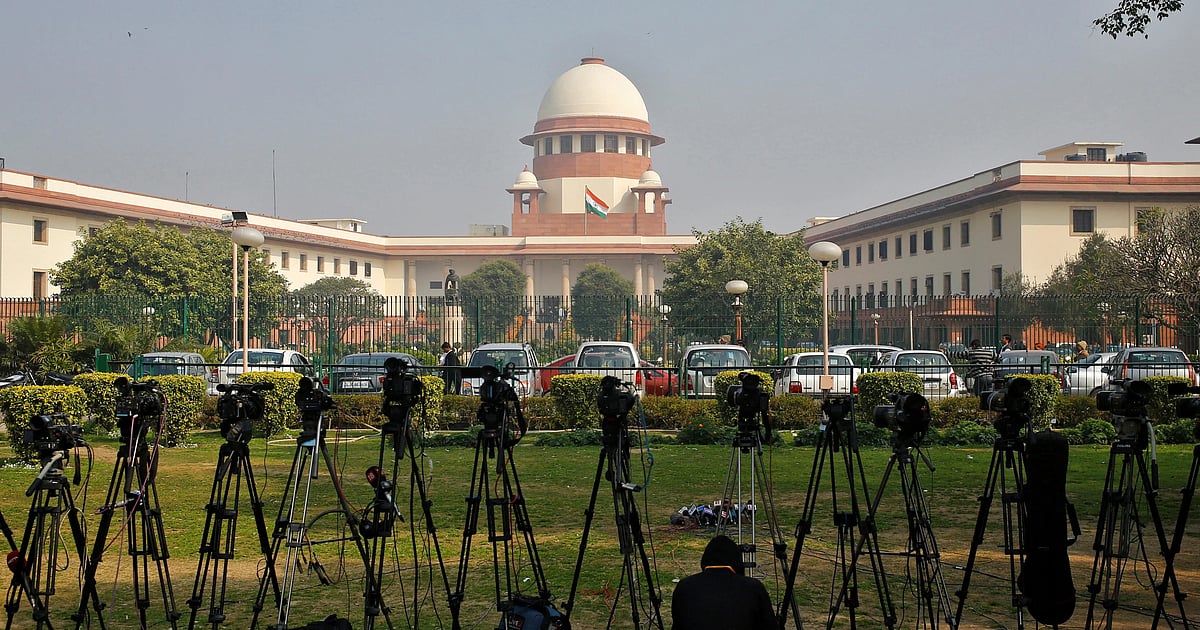Justice delayed is justice denied: SC denies plea to reduce period for judicial exams
Judicial CrackdownPosted by AI on 2025-09-08 06:52:20 | Last Updated by AI on 2025-09-08 23:28:56
Share: Facebook | Twitter | Whatsapp | Linkedin Visits: 0

The Supreme Court has denied a plea to modify its verdict fixing a minimum term of law practice for writing judicial examinations.
In 2018, the Supreme Court had mandated that candidates appearing for judicial services examinations must have practiced for at least three years in order to qualify for the exam. This minimum practice period binds those aspiring to become judges in the subordinate judiciary across India.
The petitioners, Law Graduates' Association, argued that the minimum practice period amounted to a violation of the Right to Equality and the Right to Practise, as guaranteed under Part III of the Constitution. They further emphasized that the verdict denied a large number of fresh law graduates, including those from the marginal sections of society, the opportunity to appear for the exam.
The petitioners' primary request was that the minimum practice period should be reduced to one year and that this period could be waived altogether for those belonging to disadvantaged sections of society.
The bench of Justice Uday Umesh Lalit, however, declined the request and affirmed the 2018 ruling, citing the importance of an adequately experienced candidate to handle the workload of a judge.
While refusing to modify the verdict, the Court added that there should be a proper opportunity given to fresh law graduates to gain experience before appearing for the exam. The Court further directed that the eligibility criteria for the upcoming exam should only be three years of practice.
The Court's decision came alongside another ruling pertaining to a petition challenging the validity of the National Judicial Appointments Commission (NJAC) Act, which had been passed by Parliament to manage the appointment of judges.
In October 2015, the Supreme Court ruled that the NJAC Act was unconstitutional as it encroached on the court's exclusive right to judicial appointments.
In the present ruling, the Court clarified that the validity of the NJAC cannot be reconsidered, emphasizing that the Court's previous judgment upheld the collegium system for the appointment of judges.
The Bench concluded by assuring that the Court is consistently working to improve the system for selecting judges and ensuring that the process remains insulated from political influence or interference.
Search
Categories
- Sports
- Business
- National
- Investments
- History
- Politics
- International
- Science & Technology
- Social Issues
- Disaster Management
- Current Affairs
- Events & Jobs
- మన పార్టీ
- మన నాయకత్వం
- మన విజయాలు
- డౌన్లోడ్స్
- మీడియా వనరులు
- కార్యకర్తలు
- రాజకీయం
- బిజినెస్
- సంపాదకీయం
- నవ్య
- చిత్ర జ్యోతి
- క్రీడలు
- జాతీయం
- తెలంగాణ
- తాజా వార్తలు
- Fast Check
- South
- Gallery
- Sunday Chronicle
- Hyderabad Chronicle
- Technology & Innovation
- Innovations and Initiatives
- బిజినెస్
- North East Skill Center News
- Government Schemes
- Entrepreneurship Support
- Employment Opportunities
- Skill Training Programs
- Education
- Startup Business
- Startup News
- Awards
- Community Services
- Fundraising Events
- Volunteer Services
- Health Initiatives
- సినిమా
- లైఫ్ స్టైల్
- క్రైం
- ట్రెండింగ్
- జాబ్స్
- అంతర్జాతీయo
- Market Buzz
- Awards
- Partners
- Products
- Press Releases
- News
- Departments
- Initiatives
- Resources
- Telangana IT Parks
- Press Releases
- News
- Airport News
- Sports
- Business
- Newtons Laws of Motion
- Karbonn in Business
- Investments in Karbonn
- Company quarterly sales
- Markets
- Auto News
- Industry
- Money
- Advertisements
- Stock target
- Company Updates
- Stock Market
- Company Sales
- Staffing and HR
- Constituency Assembly
- General News
- Srikalahasti Temple
- Bojjala Sudhir Reddy
- Products
- Industries
- Services & Trainings
- Tools & Resources
- Technology Integration
- Drug Seizures & Arrests
- Telangana Narcotics
- Law & Enforcement
- Rehabilitation
- Nationwide Drug Policing
- Nigeria Seizures
- Global Operations
- Drug Awareness
- Drug Enforcement Tech
- NCB Drug Seizures
- Judicial Crackdown
- India's Surveillance Tools
- Cross-Border Links
- Women Safety
- Cyber Crimes
- Drug Abuse
- Traffic & Road Safety
- Community Connect
- Public Safety Alerts
- Citizen Assistance
- Nellore City News
- Politics & Administration
- Events & Festivals
- Agriculture & Rural
- Business & Economy
- Health & Wellness
Recent News
- Settlement Rejected, Judge Cites 'Absurdity' in $1.5B Pirated Books Case
- UK to cajole migrant-refusing nations with visa suspension threat
- Minister Promises to Complete Medical Colleges Under PPP Model
- headline RO Water Plants Inquiry Sought for Citizen Health Protection
- Tragic Deadliest Toll Plaza Collision Kills 3 and Critically Injures 2 in Andhra Pradesh
- Nellore- a district of religious harmony and vibrant culture
- Government Hospital Karatampadu's Healthcare Vacuum Exposed
- Google Meet Resolved After Hours-Long Outage Impacted 17,000 Users